|
|
| |
IMPORTANT DATES
Abtsract Submission Starts
November 1, 2015
Abtsract Submission Deadline
April 30, 2016
Regular Registration
June 17, 2016
|
| |
|
|
| |
|
|
|
| PLENARY SPEAKERS |
|
| |
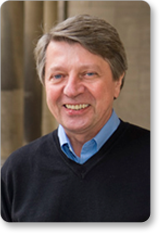 |
Krzysztof Matyjaszewski
Carnegie Mellon University, USA (confirmed)
Controlled Radical Polymerization: from Mechanisms to Applications
Curriculum Vitae
Dr. Krzysztof Matyjaszewski is the J.C. Warner Professor of Natural Sciences at Carnegie Mellon University and served as the head of the Chemistry Department. He has written 17 books, 83 book chapters, over 850 peer-reviewed articles cited more than 68,000 times (one of the three most frequently cited polymer chemists in the world) as well as 48 US and 132 international patents. His research has impacted many, as over 100 postdoctoral fellows and 100 graduate students have been members of his research group. He is the editor of Progress in Polymer Science. Dr. Matyjaszewskis research interests include macromolecular engineering; synthesis of well-defined macromolecules via living and controlled polymerizations; homogeneous and heterogeneous catalysis; and the preparation of well-defined polymers and hybrids for optoelectronics, ceramics, and biomedical applications. He discovered Cu-mediated Atom Transfer Radical Polymerization, commercialized in US, Europe, and Japan. Dr. Matyjaszewski received the 2014 Japan National Institute of Materials Science Award, 2012 Maria Curie Medal, 2012 Prize of Société Chimique de France, 2011 Wolf Prize in Chemistry, 2009 Presidential Green Chemistry Challenge Award, and from the American Chemical Society: 2013 North America Science Award, 2011 Hermann Mark Award, 2011 Award in Applied Polymer Science, 2002 Polymer Chemistry Award, and 1995 Creative Polymer Chemistry Award. He was awarded with seven honorary degrees (Ghent, Lodz, Athens, Moscow, Toulouse, Pusan, Paris) and is a member of National Academy of Engineering, Polish Academy of Sciences, and Russian Academy of Sciences and a fellow of National Academy of Inventors.
|
| |
|
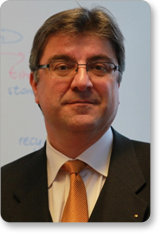 |
Niyazi Serdar Sariciftci
Johannes Kepler University, Austria (confirmed)
From Organic To Bioorganic Electronic Devices
Curriculum Vitae
Niyazi Serdar Sarıçiftçi graduated from the Austrian St. George's College in Istanbul. He also studied classical piano at the Music Conservatory in Istanbul (1970-1980). Then he began studying physics at the University of Vienna (1980-1989). After obtaining the doctorate (1989), he conducted research on the 2nd Physical Institute of the University of Stuttgart, Germany (1989-1992). In 1992 he received the academic teaching license (venia docendi) by the Central Interuniversitary Commission (YÖK) in Ankara, Turkey. He then went to the Institute for Polymers & Organic Solids at the University of California, Santa Barbara, California, USA, where he worked for four years and, together with Alan J. Heeger (Nobel Prize in Chemistry, 2000) discovered and investigated the polymeric organic solar cells has (1992-1996). In April 1996, he accepted the appointment as Chair of Physical Chemistry at the Johannes Kepler University Linz. Since 1996 he gives lectures as a full professor at the JKU and is the head of the Institute for Physical Chemistry. In 2000 he was appointed founding director of the Linz Institute for Organic Solar Cells (LIOS) at JKU. Between 2003 and 2009 he was elected to the City Council of the City of Linz (SPÖ Group). Furthermore, Sarıçiftçi is a founding member of the Linz Circle. He is also a member of various associations and societies: Fellow of the Royal Society of Chemistry (FRSC), American Chemical Society (ACS), Materials Research Society (MRS), Austrian Physical Society (ÖPG), Austrian Chemical Society (GÖCH) and Fellow of SPIE. 2014, he was elected a corresponding member of the Austrian Academy of Sciences (AAS). Sarıçiftçi has published more than 500 scientific publications in scientific journals. He is one of the most cited scientists in his field. In a global ranking of the best materials scientists Sarıçiftçi was classified as 14th.
|
| |
|
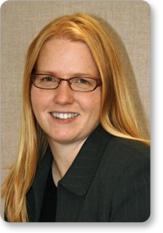 |
Kristi S. Anseth
University of Colorado Boulder, USA (confirmed)
Hydrogels as dynamic cell niches through photo-click and photo-clip reactions
Curriculum Vitae
Kristi S. Anseth earned her B.S. degree from Purdue University in 1992 and her Ph.D. degree from the University of Colorado in 1994. She then conducted post-doctoral research at MIT as an NIH fellow and subsequently joined the Department of Chemical and Biological Engineering at the University of Colorado at Boulder as an Assistant Professor in 1996. Dr. Anseth is presently a Howard Hughes Medical Institute Investigator and Distinguished Professor of Chemical and Biological Engineering. Her research interests lie at the interface between biology and engineering where she designs new biomaterials for applications in drug delivery and regenerative medicine. Dr. Anseths research group has published over 200 publications in peer-reviewed journals and presented over 180 invited lectures in the fields of biomaterials and tissue engineering. She was the first engineer to be named a Howard Hughes Medical Institute Investigator and received the Alan T. Waterman Award, the highest award of the National Science Foundation for demonstrated exceptional individual achievement in scientific or engineering research. In 2009, she was elected a member of the National Academy of Engineering and the Institute of Medicine. Dr. Anseth is also a dedicated teacher, who has received four University Awards related to her teaching, as well as the American Society for Engineering Educations Curtis W. McGraw Award. Dr. Anseth is a Fellow of the American Association for the Advancement of Science and the American Institute for Medical and Biological Engineering. She serves on the editorial boards or as associate editor of Biomacromolecules, Journal of Biomedical Materials Research Part A, Acta Biomaterialia, Progress in Materials Science, and Biotechnology & Bioengineering.
|
| |
|
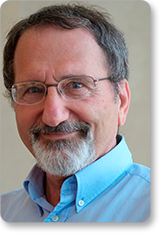 |
Nikos Hadjichristidis
KAUST, Saudi Arabia (confirmed)
Novel Strategies Towards Well-Defined Polyethylene-Based Complex Macromolecular Architectures Curriculum Vitae
The research of Prof. Hadjichristidis focuses mainly on the synthesis of novel homopolymers, and copolymers with well-defined complex macromolecular architectures (star, comb, cyclic, dendritic, etc ) by using anionic polymerization (AP) high vacuum techniques, as well as combination of AP with other polymerization methodologies (polyhomologation, ROP, ROMP, ATRP, etc). These polymers are ideal models for checking the theory, understanding and improving the performance of industrial polymers (e.g. polyethylene, polystyrene based thermoplastic elastomers) and are potential candidates for high-tech applications (e.g. nanolithography, drug delivery, high temperature membranes). He has published more than 450 scientific papers in referred scientific journals, 19 patents, is the editor of three books and author of one book on Block Copolymers (Wiley 2003). He has received many awards including: The American Chemical Society (ACS) National Award for Polymer Chemistry (2015); the ACS, Rubber Division Chemistry of Thermoplastic Elastomers Award (2011); The ACS, Polymeric Materials Science and Engineering (PMSE) Division Cooperative Research Award (2010); The International Award of the Society of Polymer Science, Japan (SPSJ, 2007); He has been elected for the Macro Group United Kingdom Medal for Outstanding Achievement for 2016. Social Media https://polymer.kaust.edu.sa
|
| |
|
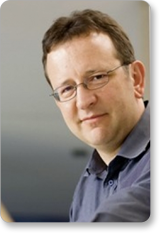 |
Markus Antonietti
Max Planck Institute, Germany (confirmed)
Polymer Ionic Liquids: From Green Polymer Chemistry to Stabilizers to Actuators
Curriculum Vitae
Markus Antonietti studied Polymer Chemistry in Mainz and was infected with the polymer virus already those days. His Habilitation, also in Mainz in 1990, was dealing with microgels and the control of their nanostructure. Since 1993, he is Director of the Max Planck Institute of Colloids and Interfaces. He has published about 650 Papers, which were cited more than 50000 times. His work was honoured at diverse occasions, but he calls it most rewarding that 45 of his former coworkers hold leading professorships, worldwide. His current interests cover porous polymers and carbons, synthesis of novel polymers, green chemistry and Carbon Negative Polymer Materials on the base of biomass, energy storage and artificial Photosynthesis
|
| |
|
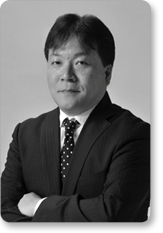 |
Takuzo Aida
University of Tokyo, Japan (confirmed)
Stimuli-Responsive Smart Soft Materials
Curriculum Vitae
Dr. Takuzo Aida was born in 1956. He received his Ph.D. in Polymer Chemistry from the University of Tokyo in 1984, and then began his academic career as an assistant professor at the same university on precision polymer synthesis. In 1996, he was promoted to full professor of the Department of Chemistry and Biotechnology, School of Engineering, the University of Tokyo. His research interests include optoelectronic soft materials, bioinspired macromolecules and materials including "Aqua Material", and molecular and biomolecular machines. He was appointed as a researcher for JST PRESTO Project for Fields and Reactions in 1996, and served as the director for JST ERATO AIDA Nanospace Project in 20002005 and then for JST ERATO-SORST Electronic Nanospace Project in 20052010. He is now the deputy director for Riken Center for Emergent Matter Science. He has received many awards including, as recent examples, American Chemical Society Award in Polymer Chemistry, Chemical Society of Japan Award in 2009, Purple Ribbon in 2010, and Fujiwara Prize and Alexander von Humboldt Research Award in 2011.
|
| |
|
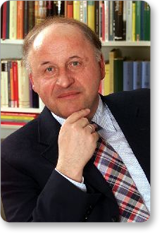 |
Michael Buback
(Bob Stepto Lecturer) (confirmed)
Radical Polymerization Kinetics and Mechanisms studied by Pulsed Laser Initiation in Conjunction with Highly Time-Resolved EPR Spectroscopy
Curriculum Vitae
Michael Buback studied chemistry at the University of Karlsruhe, where he received his PhD in 1972. After Habilitation in 1978 he was awarded a Heisenberg Fellowship by the German Science Foundation (DFG). He became Professor for Applied Physical Chemistry at the University of Göttingen in 1981, Full Professor for Technical and Macromolecular Chemistry in 1995, and Member of the Göttingen Academy of Sciences in 2000. Michael Buback received the Dechema Award, the Bunsen-Denkmünze, and the Herman F. Mark Medal. Michael Buback has been a member of the Academy of Sciences in Göttingen since 2000. In January 2008 he accepted the position of the vice president of the Polymer Division of the International Union of Pure and Applied Chemistry (IUPAC). He has published over 300 peer-reviewed papers. His research interests cover the entire field of radical polymerization with a focus on detailed kinetic studies via pulsed laser initiation carried out in conjunction with highly time-resolved IR, near-IR, and EPR spectroscopy. Further activities address the kinetics and the phase behaviour of chemical processes in extended ranges of pressure and temperature. Special expertise centers around the quantitative monitoring, via online vibrational spectroscopy, of species occurring during chemical transformations at pressures up to 7000 bar.
|
|
| |
| |
|
|

